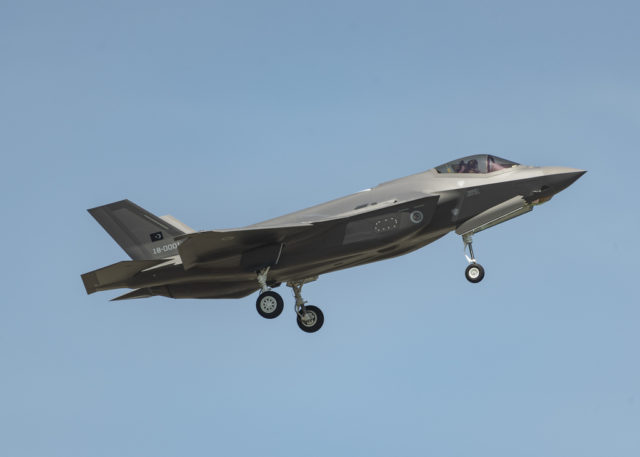Update: On July 24, Congress finalized a defense authorization bill that includes a provision barring Turkey from obtaining F-35 fighter jets until the Pentagon submits a report to Congress detailing the impact of Ankara’s possession of both the S-400 system and F-35s. The Department of Defense has 90 days to compile and submit the statement.
Turkey’s Minister of Foreign Affairs, Mevlut Cavusoglu, reiterated his government’s commitment on Wednesday to purchase the Russian S-400 missile defense system. The decision renewed concerns that Turkish operation of American F-35 aircraft in proximity to the S-400 will allow Russia to discover critical information about the F-35 flight characteristics and stealth capabilities, undermining the jet’s effectiveness.
Turkey currently possesses only two F-35 fighter jets which were delivered to the country last month as part of a symbolic ceremony. However, Turkey is slated to receive its total delivery of 116 F-35 units in 2019. Owing to Turkey’s plans to purchase Russian air defenses, American lawmakers are seeking to block the remaining transfer of planes. According to a Reuters report, a senior U.S. official stated that Turkey’s pursuit of both the F-35s and the Russian S-400 will trigger American sanctions. Under the 2017 House Resolution titled Countering America’s Adversaries Through Sanctions Act, the United States government can impose sanctions on any country that engages in a “significant transaction” with the Russian defense industry.
Moscow reached an agreement with the Turkish government in December of last year that included the $2.5 billion deal to obtain of the S-400 system. Ankara is expected to receive its first delivery of the S-400 components in 2019. Turkey’s acquisition of the advanced air defense technology comes at a time when its neighbors are procuring a large number of F-35 units. At the end of 2019, the United Kingdom, Norway, Italy, and the Netherlands will receive a combined total of around 66 F-35 Lightning II multirole fighter planes. The likely information-sharing between Russia and Turkey has the potential to compromise the security advancements that the preserve the unmatched performance of NATO’s F-35s.
The security challenges presented from Turkey’s possession of both the F-35 fighter jet and the S-400 air defense system comes following the controversial election of President Recep Tayyip Erdogan to the newly enhanced office of president. Erdogan has used anti-Western comments to bolster his popularity at home; he previously warned that the safety of Western citizens could be in peril if European nations persist in “arrogant conduct,” and currently holds an American minister in a Turkish prison. As President Erdogan begins his five-year term in office with his newly expanded powers, Turkey’s possession of both the American F-35 and the Russian S-400 will bolster the nations hegemonic ambition and undermine both NATO’s effectiveness and the world’s stability.






